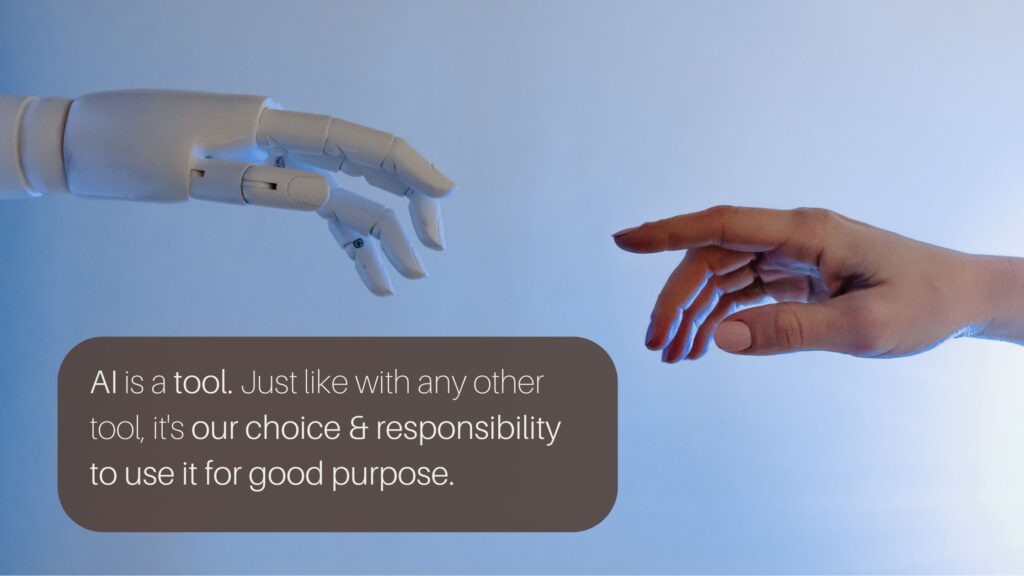Marketing is an industry that, poetically speaking, eats adaptability at breakfast. What are adaptability examples in marketing? Let’s explore that in this article.
By the way, a large part of why I’m working as an adaptability skills trainer is because I used to be a digital marketer. That job taught me the importance of being adaptable.
It didn’t happen overnight though! I wasn’t really adaptable during the first 3-4 years of my job as a digital marketer. Because of lack of adaptability skills, I got my first burnout, left the job at the lowest point of my mental health, and it took me 3 years to regain my confidence as a professional. But when I actively improved my adaptability, everything changed.
So now I can say with confidence – adaptability is the CORE skill of success in marketing. Why? Keep reading, I’ll give you 14 examples.
Where do digital marketing people need adaptability at their work?
1. Adapting to Constantly Changing Algorithms
Marketing people need to keep up with the frequent changes in social media and Google algorithms to maintain visibility and engagement. For example, a couple of years ago I used to spend most of my time to create Facebook photo posts until I realised: only 200 people will see this post organically with the newest algorithm change. It’s not the best way to use my time and energy. So I focused on other content marketing forms that brought better results.
2. Creating Engaging Content in a Saturated Market
Marketing people constantly need to find unique and engaging content ideas. In a market flooded with content, it’s harder to stand out. So you need to adapt both WHAT you talk about, and HOW you talk about it. If the competitors start copying your strategy, you also need to improve it to stand out again.
3. Adapting to New Technologies or Platforms
My biggest successes as a digital marketer have come from talking about my client’s products at places where the competition hadn’t arrived yet. So, I can only agree that staying ahead in the adoption of emerging technologies and platforms before they become mainstream is crucial for marketers. AR, VR, AI are a couple of examples.
4. Privacy Regulations and Data Security
If you’re a marketer from Europe, or working with customers from Europe, you already know about the privacy laws (like GDPR). Every marketer needs to absorb the complex info about these policies and ensure data security while still personalising customer experiences.
5. Cross-Channel Marketing
There’s not a lot of businesses who can only survive by communicating about their product on one platform only. So coordinating and optimising communication across multiple channels and platforms is a constant adaptability challenge for marketers.
6. Budget Constraints
Marketing goals are usually ambitious. Budgets rarely are. It means marketers need to figure out both creative and cost-effective strategies on a regular basis to achieve ambitious goals with the budget that they have. It can also mean that you’d need to quickly reallocate budgets from underperforming channels to more effective ones or invest in new marketing technologies.

Not always the Budget Paradox is present in marketing, of course 🙂
By the way, are any of those examples relatable so far? Drop a line on LinkedIn, I’d be happy to know!
7. Job position change
If a person you report to changes, you’ll need to adapt to their communication and work style, perspective, ideas. In my experience, there is a small percentage of new leaders who actually adapt to the team that they lead. Usually most leaders try to change the marketing strategy, platforms, even work processes and inner communication channels to fit their own habits, skills and preferences. Mostly with good intentions, because they think that what works for them is the best way for everybody. But for you that most often will be a challenge, and you’ll need to adapt to it.
8. Leadership change
If you become the leader, you also need to adapt to your new duties and responsibilities. You’ll need to unlearn and let go of strategies that used to work in the previous role, and relearn different, new skill sets that you need as a leader. You’ll need to become the most adaptable person of the team in the future to embrace any change before anyone of the team does. Because, consciously or not, the team is watching and mirroring what you do, not what you say.
9. Company growth
I have experienced that a company that I work for grows immensely. So, as a marketer, I needed to adapt both the strategy and the message of the product. Because what works for a small company, won’t always work for a medium or large one, even if it’s the same company. If this happens to you, that is a moment when you need to use your adaptability skills.
10. Pivoting Strategies
Not only algorithms, but also new market trends, customer feedback, or competitor actions make marketers constantly adapt their existing strategy. At one company I needed to adapt the marketing strategy once a week for 6 months, simply because the demand of the product suddenly boomed, new competitors showed up each week and started copying the visuals like crazy until the results dropped. If this happens to you, you also need grit and mental flexibility to get through this challenge, and not only get through it, but to be successful.
11. Using AI to Improve the Everyday Work
I already mentioned adapting to new technologies, but this one needs its own spotlight. There is a global discussion whether it’s ethical to use AI in marketing. In my experience and opinion – it can be. Because AI is a tool. It’s not the tool that is ethical but the user that makes it so. The use of AI is each of our own individual responsibility.

AI makes me feel less squeezed out at the end of the day, and saves time. I get ideas, first drafts of texts and even captions of my videos within seconds with the help of it. For me, it’s a huge win – even though I still have to do most of the work. AI seems to be the technology of the decade, so we better learn how to adapt to it.
12. Collaboration with other departments
Marketing, in its best practice, goes hand in hand with other departments, like sales, product development and customer service. So, one method that could definitely help any marketer – if it isn’t helping already -, is to set up and utilise quick feedback loops from customers and other departments to constantly refine communication strategies and messages. That will make the marketing message and content in line with the product and customer needs. And, in the best practices, marketing too can become a way to improve a product, and, thus, create success for the whole company.
13. Responding to New Data
Marketing people always need to process tons of new information and figure out the best way to use it to improve the strategy and stay ahead of the curve. Analytics, future predictions of the technology, customer feedback, soclai platform updates, the list goes on. So you have to, as a marketer, not only be able to process the huge amount of data, but also make good and quick decisions that are followed by action. You actually do something different because of what you learned. An active response to the new information is called adaptability.
14. Persuading the Decision Makers
Let’s say, you’ve learned about this new platform that could reach your target audience. It is very likely that you’ll need somebody else’s approval to actually start working on it. So, the more people you need the approval of, the more you’ll need to be flexible with the way you communicate the same idea. The same goes with persuading different audiences to interact with your brand, or purchase the product or service. A point that might persuade an analytical thinker won’t persuade a dreamer, and you as a marketer need to adapt the same message in different ways.
Now, I hope you found this article useful. Which of these examples did you recognise from your experience? Write in the comments!
P.S. How adaptable are you? What are your strenghts, areas to improve? Take the science-based AQ, or adaptability intelligence, online assessment here to find out.

Comments are closed